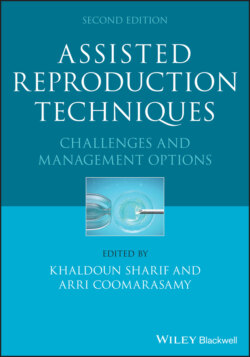Читать книгу Assisted Reproduction Techniques - Группа авторов - Страница 160
Key points
ОглавлениеChallenge: Patient with renal transplant undergoing IVF.
Background:
The number of renal transplant recipients wishing to undergo IVF treatment is increasing.
Women should be encouraged to wait for 12 months after renal transplant before attempting to conceive.
Once pregnancy is achieved in renal transplant recipients, the live birth rate is approximately 75%.
Pregnancy does not have an adverse impact on graft and patient survival in patients with good graft function. In patients with significant prepregnancy renal impairment, the risk to pregnancy and graft is increased.
During IVF treatment, there are increased risks of OHSS, with oocyte retrieval and of venous thromboembolism.
Fetal risks include teratogenic effect of immunosuppressants and risk of preterm delivery, miscarriage, fetal growth restriction and stillbirth.
The risk of hypertension, preeclampsia graft rejection and venous thromboembolism is greater in renal transplant patients compared with the healthy population.
Management:
Thorough prepregnancy counseling, ensuring that patients are aware of the risks of IVF treatment specific to renal transplant recipient as well as the obstetric and fetal risks during pregnancy.
Prepregnancy consultation should be in a multidisciplinary team setting with involvement of renal physicians before embarking on IVF treatment.
Consider the welfare of the child.
Reduce risk of OHSS using the lowest effective dose of gonadotropin and the antagonist protocol.
Provide adequate thromboprophylaxis.
Ensure senior operator present for oocyte retrieval.
Consider genetic counseling for inherited renal disease as PGD may be required.
